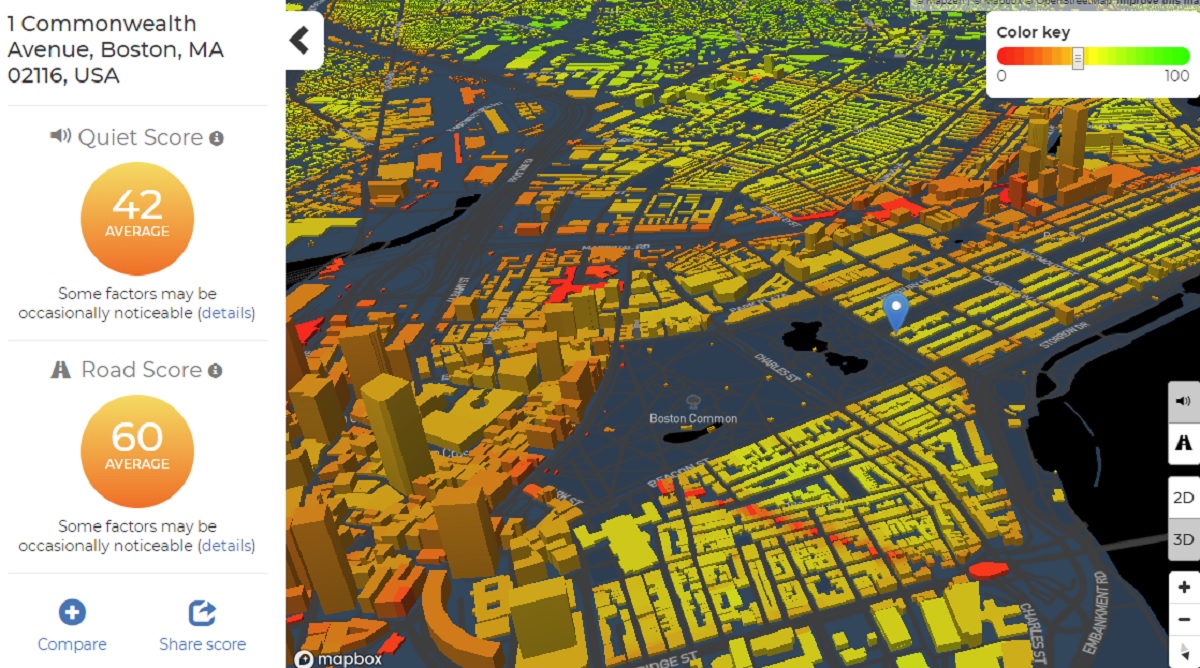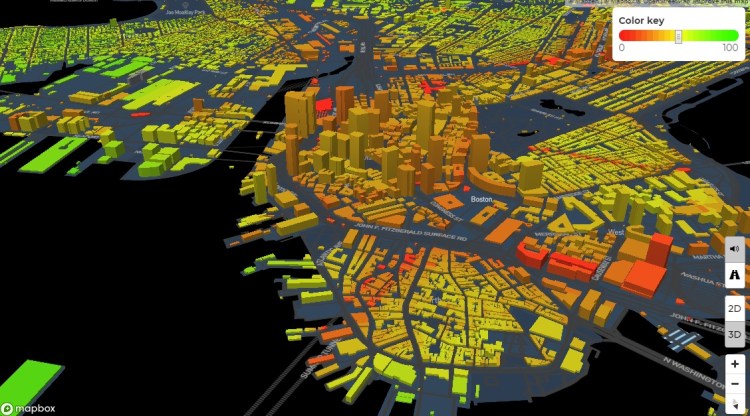If you’re checking out a home to buy, you could easily miss key information, like how close it is to major arterial traffic or whether a street is really as quiet as the realtor claims. That’s why Liberty Mutual Insurance is unveiling two data-driven tools that help consumers find the right home and then protect it.
The Boston-based company, which was founded in 1912, is today unveiling Total Home Score and Dwellbeing, which can help homebuyers and homeowners make more informed decisions and live with greater peace of mind. These new tools are being launched by Solaria Labs, the innovation center the legacy insurance provider launched in September 2015 to foster new thinking.
The Total Home Score will aggregate data about homes and neighborhoods on a map, so you can easily see a visualization of features such as noise or traffic. The map reminds me of the video game SimCity, where various factors contribute to the happiness of residents, known as Sims.
“We want to bring analytics to help consumers understand hidden factors before they move into a new home,” said Adam L’Italien, vice president of global consumer markets innovation at Liberty Mutual, in an interview with VentureBeat. “These tools can aid you in a search you might discover on your own.”
June 5th: The AI Audit in NYC
Join us next week in NYC to engage with top executive leaders, delving into strategies for auditing AI models to ensure fairness, optimal performance, and ethical compliance across diverse organizations. Secure your attendance for this exclusive invite-only event.
The Total Home Score includes livability factors such as the Road Score, which measures daily traffic patterns and the prevalence of aggressive and potentially dangerous driving around a neighborhood, and the Quiet Score, which factors in estimated noise levels surrounding a home. It also measures how close a home is to a major road, train, or subway network.
Solaria Labs is making technology available through an applications programming interface, and third-party developers can create additional applications that tap the public and private data that goes into the Total Home Score calculations.

Above: Yep, it’s noisy by Boston Common.
So far, the Quiet Score data is being fine-tuned with hundreds of field measurements around Greater Boston. Total Home Score has rolled out in Boston and Chicago. L’Italien said that research shows as many as 40 percent of people would have reconsidered if they had understood noise levels before purchasing a home.
“This helps because you can’t sample a week’s worth of noise or traffic before you make a decision,” L’Italien said.
Total Home Score livability factors range from 0-100, with 100 being the highest score. All livability factors start at 100 and decrease based on local geospatial data around the home.
“There are many hidden factors that aren’t easily uncovered at an open house or home inspection. When looking for a home that’s right for your family, information is everything, and with Total Home Score, that information is right at your fingertips,” said DIY expert and television personality Chip Wade, in a statement.
Wade and his wife Pauli Wade, who is a real estate agent, have teamed up with Liberty Mutual to show consumers the importance of full transparency during a house hunt. In the future, Liberty Mutual could add data to judge how safe a neighborhood or street is and whether a home is a good place for a vacation rental.
Dwellbeing, meanwhile, helps assess the health of a home or apartment and encourages residents to proactively maintain their dwellings through task-oriented notifications.
The company will send customized alerts when common household appliances or systems need maintainance and provide details for how to go about servicing them. Dwellbeing is in testing with a limited number of users and is expected to be available to the broader public later this year.
L’Italien said Solaria Labs is looking at emerging trends inside and outside the industry, and it is experimenting with risk mitigation and protection for consumers. L’Italien said the lab’s new office in Singapore will enable access to more data as that city becomes smarter.
“As cities get smarter, this data will become more and more available,” he said.


